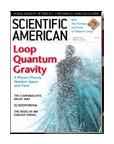|
Home
Travel
Cruises
Past Cruises (Diaries)
Future Cruises
Rogues Galleries
Land Trips
Diaries (Land Trips)
Hawai'i
- Big Island - 04'01
Hawai'i
- Maui - 05'02
Hawai'i
- Big Island - 04'03
Hawai'i
- Kaua'i - 09'04
Hawai'i
- Big Island - 04'06
Hawai'i
- Maui - 04'06
Mainland China
- 05'07
Phoenix, Arizona
- 12'07
Greek Isles
- 05'08
Hawai'i
- Kaua'i - 09'08
Hawai'i
- Big Island - 09'09
Hawai'i
- Maui - 05'12
Hawai'i
- Big Island - 04'13
Ireland
- 08'13
Mexico
- Cancun 11'13
France/Belgium/Lux 07'15
Hawai'i
- Big Island - 05'17
England
/ Wales - 06'17
Hawai'i
- Big Island - 09'19
Photography
Cameras
Underwater
Pets
Tara
Blackie
Whitey
Muffy
Ollie
Rusty
Fluffy
Rufus&Dufus
Games
Rowing
Physics
|
|
I graduated from UBC in 1971 with a combined degree in Physics and Mathmatics. Although I never pursued a career in
physics, I have remained interested in the field ever since. My real passion is particle physics.
Particle Physics Literature

 The major source I use to keep current with Physics is
Scientific American Magazine. It is quite up-to-date and carries a lot of info
about particle physics. I have subscribed to the magazine since 1967. The SciAm Web site has a lot of good reference material too.
The major source I use to keep current with Physics is
Scientific American Magazine. It is quite up-to-date and carries a lot of info
about particle physics. I have subscribed to the magazine since 1967. The SciAm Web site has a lot of good reference material too.
There are a lot of good books on particle physics. The problem is finding one at the right level. I've tried a number of graduate university
course texts, but I get lost in the mathematics and find it difficult to "translate" to the physical world. On the other hand, there are
some purely qualitative, descriptive books that lack any mathematics at all, but they tend to be too "simple". Finding the right level can
be a challenge. Some of my favorite books / authors are as follows:
- In Search of the Ultimate Building Blocks - Gerard 't Hooft
- The Elegant Universe - Brian Greene
- The God Particle - Leon Lederman
- Three Roads to Quantum Gravity - Lee Smolin
- The Big Bang - Joseph Silk
- The Elements - P. A. Cox
The Current Particle Zoo
Despite the recent advances in understanding the underlying structure of hadrons
(baryons and mesons), there are still a large number of "elementary" particles.
| Fermions ("matter/anit-matter" particles) |
|---|
| Family
| Leptons | Quarks |
| Charge
| -1
| 0
| -1/3 | +2/3 |
| 1st generation
| electron (e-)
| neutrino (ne)
| down (d)
| down (d)
| down (d)
| up (u)
| up (u)
| up (u)
|
| 2nd generation
| muon (m-)
| neutrino (nm)
| strange (s)
| strange (s)
| strange (s)
| charm (c)
| charm (c)
| charm (c)
|
| 3rd generation
| tau (t-)
| neutrino (nt)
| bottom (b)
| bottom (b)
| bottom (b)
| top (t)
| top (t)
| top (t)
|
| Bosons (force carrying particles) |
|---|
| Force | Name | Symbol | Number of Particles | Spin |
|---|
| Gravitational | graviton | G | 1 | 2 |
| Electro-Magnetic | photon | g | 1 | 1 |
| Weak Force | intermediate vector boson | W+,
W-, Z0 | 3 | 1 |
| Strong Force | gluon | g | 8 (color pairs) | 1 |
| Grand Unified Force | GUT boson | X+, X-,
Y+, Y- | 4 | 1 |
| Higgs Force | Higgs boson | H0 + ? | 1 + | 0 |
The Future of Particle Physics
Remarkable strides have been made in particle physics in the last century. However, there remains much to
be discovered and explained. Some of the items I am hoping to see resolved during my lifetime are as follows:
- Neutrino Mass - Neutrino mixing is generally accepted, impying that the three
flavours of neutrinos have differing masses.
However, are all 3 masses non-zero? Is the electron neutrino the lightest? What are the values of the masses?
- Quantum Gravity - Quantum mechanics (QED and QCD) and general relativity are
two highly successful theories. QM explains the world
of the small, and GR the world of the large. Can the two be combined into a single theory?
- Dark Matter - 20% of the mass of the universe has been defined as "dark matter". This unseen matter is
distributed in clumps just like normal matter. What is the nature of this dark matter?
- Dark Energy - 75% of the mass of the universe has been defined as "dark energy"
(no relation to dark matter!). This unseen energy seems
to have an even distribution throughout the universe. What is the nature of this dark energy?
- Higgs Particle(s) - The Higgs particle(s) is postulated as the force carrying
particle that gives rise to mass. Each
elementary particle interacts with the Higgs field, giving it it's unique mass. The Higgs particle itself probably weighs in
at 100 to 1000 GeV. When will it be detected? Are there just one type of Higgs particle, or are there four?
- Super Symmetry Particles - If supersymmetry is a correct theory, then all of the
fermion particles have boson counterparts.
What mass do these counterparts have, and will some of the lighter ones be detected soon?
- The Graviton - The graviton is the quanta of the gravitational field. Although gravity
is the dominant force in the large
scale universe, it is essentially zero in the world of the very small. This makes the graviton exceedingly difficult to detect.
When will it be detected?
- Gravitational Waves - When a large star implodes, it should give off gravitational waves,
just as a supernova gives off a flash of light.
When will we be able to detect such fluctuations of gravity?
- Expansion of the Universe - There is no doubt that the universe is expanding, but is there anything
driving the expansion besides the original Big Bang? If so, is the expansion accelerating? Is dark
energy involved?
Other Good Particle Physics Links
The following links will take you to Web sites that cover various aspects of particle physics.
|






 The major source I use to keep current with Physics is
Scientific American Magazine. It is quite up-to-date and carries a lot of info
about particle physics. I have subscribed to the magazine since 1967. The SciAm Web site has a lot of good reference material too.
The major source I use to keep current with Physics is
Scientific American Magazine. It is quite up-to-date and carries a lot of info
about particle physics. I have subscribed to the magazine since 1967. The SciAm Web site has a lot of good reference material too.